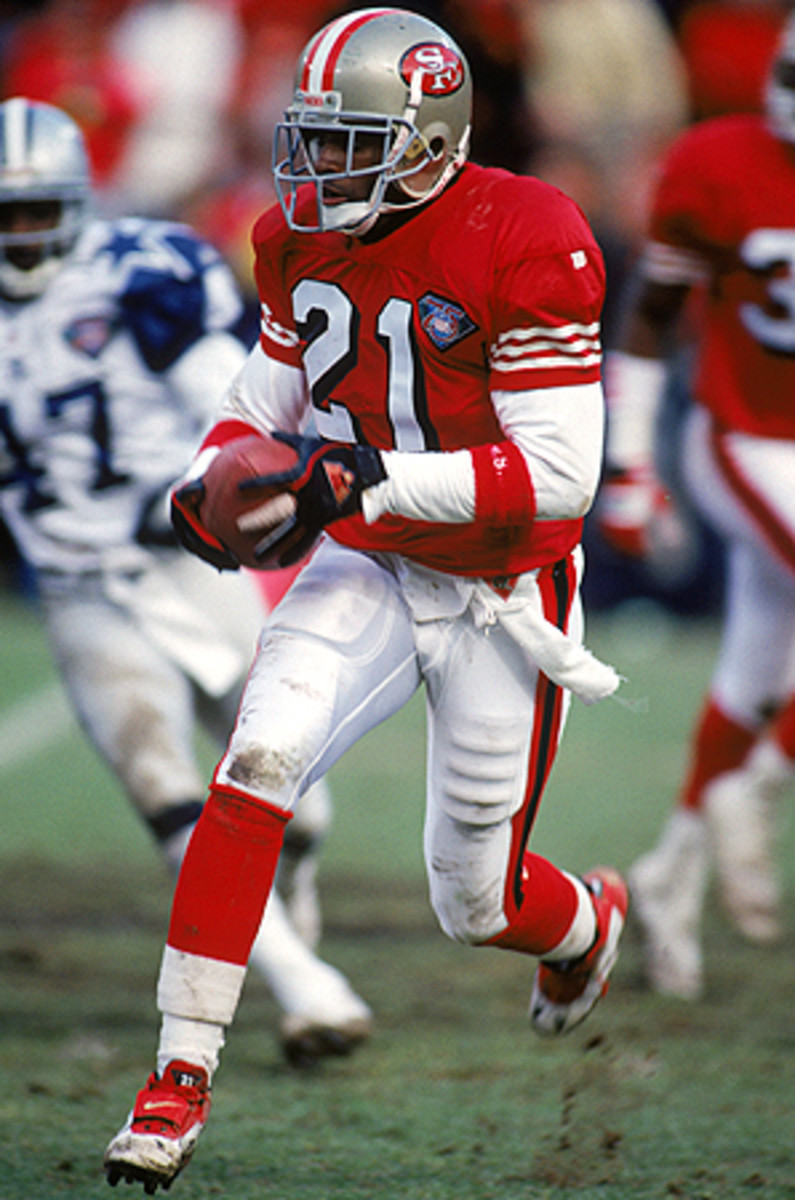
Per usual, Hall of Fame voters face difficult decisions in 2011 class
The only thing that figures to rival the game for intrigue is the Hall of Fame vote that will take place Feb. 5. The prevailing opinion is that cornerback Deion Sanders and running back Marshall Faulk are shoo-ins. If correct, that would leave only three spots for 13 other modern-era finalists.
PHOTO GALLERY: 2011 HOF Finalists
Translation: There are going to be a lot of disappointed -- and deserving -- candidates left on the sideline when the 44 members of the selection committee cast their votes. Just look at the players up for consideration: running backs Curtis Martin and Jerome Bettis; wide receivers Cris Carter, Tim Brown and Andre Reed; defensive end/outside linebacker Charles Haley, Richard Dent and Chris Doleman; tight end Shannon Sharpe; center Dermontti Dawson; defensive tackle Cortez Kennedy; offensive tackle Willie Roaf; and contributor Ed Sabol, who founded NFL Films.
If recent history is our guide, there will be at least one out-of-nowhere surprise. It has happened each of the past three years.
Be honest, did you have Saints linebacker Rickey Jackson on your list of 2010 inductees? Or Bills owner Ralph Wilson in 2009? Or 49ers linebacker Fred Dean in 2008?
That's not to say they weren't deserving. Instead it's to say when it comes to Hall of Fame voting you just ... never ... know.
Carter ranked second in league history with 130 touchdown catches at the time of his retirement; Haley won a player-record five Super Bowls and had 100.5 career sacks; and Brown had 10 consecutive seasons of at least 75 catches and nine straight 1,000-yard seasons; and none survived the first round of cuts for finalists last year.
Think about that for a moment. The receiver with the second-most TD catches of all time, a pass rusher with triple-digit sacks and the most Super Bowl wins in league annals, and a wideout with nine straight 1,000-yard seasons failed to even make the final 10. If that doesn't speak to the quality of the candidates, it points out the unpredictability of the voting and, perhaps, the open-mindedness of the voters.
There figures to be more surprises this year, with three players each at running back, wide receiver and pass rusher. The last time modern-era candidates from the same position were inducted in the same year was 2006, when quarterbacks Troy Aikman and Warren Moon received gold blazers.
As great as Faulk was, a strong case can be made that Martin is just as deserving. He ran for more yards than Faulk and joined Barry Sanders as the only players to start a career with 10 consecutive 1,000-yard seasons. Faulk was a much better receiver and played in two Super Bowls to one for Martin. Faulk's Rams won a title; Martin's Patriots lost to the Packers.
The thing that makes the voting so unpredictable is that there are no black-and-white guidelines for voters. Are individual stats the most important criterion? What about Super Bowls? Should the personnel around him be considered? What about the era he played in? For instance, should the statistics of receivers who played in the 1970s and '80s, when the offenses revolved around the run, be graded on a curve against receivers who played during the fantasy-football, pass-happy era? Also, should players get preference over contributors?
"Should Marshall Faulk be in the Hall of Fame? Yes," says NBC studio analyst Tony Dungy, who coached the Colts to victory in Super Bowl XLI. "Should Ed Sabol be in? Yes, no question. But if you're telling me I can only have one, that becomes a tough choice because you're comparing things that are totally different. You're comparing a guy who performed on the field to somebody who impacted the way the whole NFL is seen. That's going to be beauty in the eye of the beholder. Should the Hall of Fame be just for players, or is a player more important than a coach or a contributor? It's a tough call."
The only instructions given to voters -- of which I am one -- is that we are to consider a player's performance on the field. Nothing else. However it would be naive to say that personalities don't come into play. Haley was one of the dominant defensive players of his era. He has the stats, the rings and the personal accolades (two-time NFC Defensive Player of the Year) to be a first-ballot Hall-of-Famer. However, he did not even become a finalist until his fourth year of eligibility, leaving some to wonder if his boorish behavior toward the media was a factor in his failure to get in.
When you factor in the subjectivity of the rules and the human element of the voters, it's easy to understand why trying to predict the outcome of the voting is as foolish as it is dangerous.




